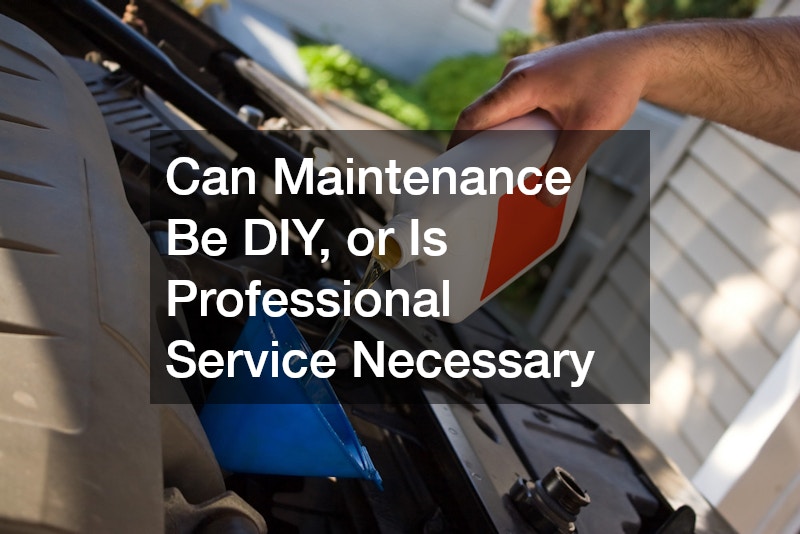Owning a car comes with the responsibility of ensuring its optimal performance and safety on the road. One of the key ways to achieve this is through regular car check-ups. Just like humans need routine medical exams, vehicles require periodic maintenance to keep running smoothly and efficiently. Regular check-ups not only help in identifying potential issues before they escalate but also ensure that your vehicle remains in top condition for years to come. From tire alignment to inspecting engine performance, staying on top of maintenance can save you time, money, and stress down the road. This article will delve into why regular car check-ups are crucial and what key aspects to focus on during these inspections.
Why Are Regular Car Check-Ups Important?

Extending the Lifespan of Your Vehicle
One of the most significant benefits of regular car check-ups is the extension of your vehicle’s lifespan. When you stay proactive with maintenance, such as visiting car repair shops for oil changes, brake inspections, and fluid checks, you allow the car’s components to function correctly over a longer period. Just like any machine, a car’s parts wear down with use, but keeping them in check can significantly slow down this process. Regular visits to reputable automotive service centers ensure that even minor issues are addressed before they turn into costly repairs. By committing to these inspections, you’re preserving your investment and potentially increasing your vehicle’s resale value.
Preventing Major Breakdowns
Few things are more inconvenient than a car breaking down in the middle of a journey. Regular check-ups prevent such scenarios by addressing problems before they become severe. For instance, checking for leaks, inspecting transmission repair needs, and ensuring proper tire alignment can make all the difference in avoiding sudden failures. An unexpected breakdown is not only a hassle but can lead to dangerous situations if it occurs on a busy road or in an unfamiliar area. By scheduling consistent maintenance at auto body shops, you can avoid costly repairs and ensure your safety and that of your passengers.
Ensuring Safety on the Road
Safety is perhaps the most critical reason for maintaining regular check-ups. A well-maintained car is less likely to experience sudden mechanical failures that could result in accidents. For example, regular inspections of the brake system, tires, and steering components are essential to maintaining control of your vehicle. Faulty brakes or worn-out tires can lead to dangerous driving conditions. Furthermore, keeping your car in optimal condition ensures that you can react to emergencies and changing road conditions more effectively. Visiting trusted car repair shops for routine safety inspections provides peace of mind and reduces the risk of accidents on the road.
How Often Should You Schedule Car Check-Ups?
Manufacturer’s Recommendations
The frequency of car check-ups largely depends on the manufacturer’s guidelines. Most vehicle manufacturers provide a recommended maintenance schedule that includes specific intervals for checking essential systems like the engine, brakes, and suspension. Sticking to these recommendations is critical to keeping your car in excellent working order. Your automotive service provider will typically refer to the manufacturer’s schedule to ensure your vehicle receives the appropriate care at the right time. Skipping or delaying these check-ups can lead to accelerated wear and tear, increasing the risk of expensive repairs down the line.
Mileage-Based Check-Ups
In addition to the manufacturer’s guidelines, many maintenance tasks are mileage-based. Most experts recommend scheduling a car check-up every 5,000 to 10,000 kilometers, depending on your driving habits and conditions. Regularly tracking your mileage ensures that you’re staying on top of essential services like oil changes, tire alignment, and transmission inspections. Skipping these check-ups based on mileage can result in a host of problems, from reduced fuel efficiency to premature system failures. Following mileage-based recommendations ensures that your vehicle continues to perform at its best.
Seasonal Considerations
Different seasons present unique challenges for vehicles, making it essential to adjust your check-up schedule accordingly. For instance, before winter sets in, it’s crucial to ensure that your tires are suitable for colder temperatures and that your battery is in good condition. Seasonal maintenance also includes checking antifreeze levels and ensuring that your car’s heating system is working correctly. Conversely, summer brings different challenges, such as overheating risks and additional strain on the air conditioning system. Regular seasonal check-ups help to mitigate weather-related issues, ensuring your car remains reliable regardless of external conditions.
What Are the Core Components to Inspect?

Engine Performance
The engine is the heart of your vehicle, so maintaining its performance is paramount. During a car check-up, technicians will typically inspect the engine for any signs of wear or damage. This includes checking the oil, examining the timing belt, and ensuring that all engine fluids are at appropriate levels. Ignoring engine maintenance can lead to significant problems, from reduced power output to complete engine failure. Regular inspections by an automotive service professional help to keep your engine running smoothly and prevent long-term damage.
Brake System
The brake system is one of the most important safety features of your vehicle. Regular inspections should focus on brake pads, rotors, and brake fluid levels. Worn brake pads can severely impact stopping distance, which poses a significant risk to your safety. During a check-up, technicians at car repair shops will also inspect the brake lines for any leaks or wear. Brake problems are one of the leading causes of accidents, making this an area that should never be overlooked during routine maintenance.
Tires and Alignment
Tires play a crucial role in ensuring your vehicle’s stability and control on the road. Regular inspections of tire tread, pressure, and condition are essential for maintaining safety and performance. Moreover, proper tire alignment ensures that your tires wear evenly, extending their lifespan and improving fuel efficiency. Misaligned tires can cause uneven wear, poor handling, and reduced gas mileage. Regular alignment checks, especially after hitting a pothole or curb, are essential to maintaining a smooth and safe ride.
Are Quick Auto Repair Shops Reliable for Check-Ups?
Benefits of Quick Auto Repair Shops
Quick auto body shops offer convenience and often provide basic maintenance services like oil changes, brake inspections, and tire rotations. For busy individuals, these quick-service options can be appealing due to their efficiency and competitive pricing. Many local auto body shop locations have trained technicians who can handle standard maintenance tasks without requiring a long wait time. For routine maintenance needs, these shops can be a reliable option, especially when dealing with basic issues like oil changes and brake pad replacements.
Things to Consider Before Choosing
While quick-service shops offer convenience, not all are created equal. It’s essential to research and choose a shop with certified technicians and positive customer feedback. Before entrusting your vehicle to a quick-service center, ask about their experience with specific services like transmission repair or alignment checks. Some tasks require specialized knowledge that not all quick-service shops can provide, so it’s crucial to ensure that the shop you select can handle your specific needs.
Reviewing Customer Feedback
Customer feedback can be an invaluable tool when choosing a quick-service shop. Reviews from other customers will give you insights into the quality of service, pricing, and professionalism of the technicians. Make sure to read a mix of reviews, especially those focusing on services you’re seeking, such as a brake inspection or collision repair service. Positive reviews from previous customers are often a good indicator of a shop’s reliability and trustworthiness.
What Are the Costs Involved in Regular Car Check-Ups?

Understanding Standard Service Costs
The cost of regular car check-ups can vary depending on the type of service and where you go. Basic services, such as oil changes or tire alignment, are generally affordable, while more complex tasks, such as transmission repair, can be costly. It’s a good idea to get a general understanding of service costs at your local auto body shop before scheduling an appointment. Having a budget in mind for routine maintenance ensures that you won’t be caught off guard by the costs.
Budgeting for Unexpected Repairs
Even with regular check-ups, unexpected issues can arise. From brake repairs to collision repair service needs after an accident, budgeting for the unexpected is a smart move. Having an emergency fund for unexpected car repairs ensures that you’re not financially burdened when surprise issues arise. Regular check-ups help minimize the risk of such repairs, but it’s always wise to be financially prepared.
Finding Affordable Options
There are many ways to find affordable car maintenance options, from comparing prices at different shops to using coupons and discounts. Many auto body shops offer deals for repeat customers or seasonal promotions. By staying on top of these offers, you can save money while ensuring that your vehicle gets the care it needs. Additionally, some car insurance company policies offer maintenance discounts, so it’s worth checking with your provider to see if this is an option.
How Do Regular Check-Ups Affect Vehicle Resale Value?
Documenting Maintenance History
When it comes time to sell your vehicle, having a well-documented maintenance history can significantly increase its resale value. Potential buyers feel more confident purchasing a car that has been well-maintained and regularly inspected. Keeping detailed records of each automotive service visit, including oil changes, brake replacements, and alignment checks, demonstrates that the vehicle has been cared for, which can help you secure a higher resale price.
Enhancing Buyer Confidence
A vehicle with a solid maintenance history will attract more buyers and command a higher price. Buyers are more likely to purchase a car that has been routinely serviced and maintained. Regular check-ups, documented in service records, provide buyers with peace of mind that they’re purchasing a reliable vehicle. This not only speeds up the selling process but also allows you to negotiate a better price.
Valuing Long-Term Investments
Investing in regular car check-ups is not just about maintaining your vehicle; it’s also about protecting your long-term financial investment. Proper maintenance ensures that your vehicle retains its value over time, making it a worthwhile investment. Routine services such as auto glass tinting and brake system maintenance can improve both the appearance and performance of your car. In the long run, these measures can prevent costly repairs and make your vehicle more appealing to prospective buyers. Regular check-ups contribute to a well-maintained car, which is not only more valuable on the resale market but also provides a smoother driving experience throughout its lifespan.
Can Maintenance Be DIY, or Is Professional Service Necessary?

Tasks Suitable for DIY
While professional services are often necessary, some vehicle maintenance tasks can be done at home by those with the right tools and knowledge. Simple tasks like changing the oil, checking fluid levels, and replacing air filters are commonly handled by DIY enthusiasts. These routine checks can be performed regularly to ensure that your car is running smoothly. However, even with these smaller tasks, it’s essential to follow your vehicle’s manual and use quality parts to avoid complications. Though you may be able to save money by doing basic tasks yourself, remember that DIY maintenance should be reserved for jobs within your skill set.
When to Seek Professional Help
Although DIY maintenance has its advantages, there are situations where professional help is necessary. Complex tasks, such as transmission repair, electrical system checks, and comprehensive diagnostics, require the expertise of trained technicians. Attempting to handle these repairs without the proper tools and training can lead to costly mistakes and even void warranties. Issues like improper tire alignment or complex engine problems should always be handled by certified professionals at reputable car repair shops. Knowing when to seek professional help is crucial in preventing further damage and ensuring your vehicle remains in peak condition.
Evaluating Tools and Skills
Before deciding to perform DIY maintenance, it’s important to evaluate your tools and skill level. Certain jobs, like replacing brakes or checking for aftermarket car parts, require specialized equipment that most car owners don’t have at home. If you lack the proper tools or aren’t confident in your skills, it’s best to leave the job to a professional. Some repairs require not only the right tools but also a thorough understanding of the car’s systems to prevent damaging sensitive components. It’s always safer to consult a qualified mechanic for major repairs and leave DIY maintenance for simpler tasks.
What Signs Indicate It’s Time for a Check-Up?
Common Warning Lights
Modern vehicles are equipped with warning lights that alert drivers to potential issues. If the check engine light or oil pressure light illuminates on your dashboard, it’s a clear sign that your car needs immediate attention. These warning lights are designed to prevent further damage by alerting you to issues early on. Ignoring these lights can lead to more severe and costly problems. When you notice any dashboard lights illuminated, it’s time to take your car to an automotive service provider to diagnose and address the issue.
Unusual Sounds or Smells
If your vehicle begins making unusual sounds or emitting strange smells, it’s a sign that something may be wrong. Grinding noises, squealing brakes, or a burning smell can all indicate mechanical issues that require immediate attention. Sounds from the engine or transmission should never be ignored, as they can signify more significant underlying problems. Regular check-ups at car repair shops help in catching these issues early, allowing for prompt repairs that prevent further damage.
Changes in Driving Behavior
Changes in how your vehicle drives, such as difficulty steering, reduced power, or an increase in fuel consumption, are also clear indicators that it’s time for a check-up. Problems with tire alignment or worn-out tires can make your car handle poorly, reducing control and safety. If you notice that your car is pulling to one side, vibrating at high speeds, or having trouble accelerating, a check-up is necessary. These signs suggest that your vehicle may have underlying issues that require professional diagnostics and repair.
How Do Regular Check-Ups Impact the Environment?
Reducing Emissions
One of the key benefits of regular maintenance is the reduction of vehicle emissions. A well-maintained car operates more efficiently, producing fewer pollutants that contribute to environmental damage. Regular inspections of the exhaust system, engine performance, and fuel systems ensure that your vehicle complies with emission standards. In contrast, neglecting maintenance can lead to issues like incomplete fuel combustion, which increases harmful emissions. By staying on top of your car’s check-ups, you can do your part in reducing your vehicle’s carbon footprint.
Recycling and Disposal of Parts
Routine check-ups often involve the replacement of worn-out components, such as aftermarket car parts or old fluids. Proper disposal and recycling of these parts are essential for minimizing environmental impact. Many auto body shops follow environmentally friendly practices when it comes to disposing of old batteries, tires, and used fluids. Recycling parts not only reduces waste but also prevents harmful materials from polluting the environment. It’s important to choose repair shops that prioritize sustainability and use recycled or eco-friendly materials whenever possible.
Enhancing Fuel Efficiency
Regular car check-ups can also help improve your vehicle’s fuel efficiency. Services such as tire alignment, engine tune-ups, and air filter replacements ensure that your car is running optimally, which reduces fuel consumption. A poorly maintained vehicle often requires more fuel to operate due to inefficiencies in the engine or tires. By scheduling regular maintenance, you can reduce your fuel usage, save money at the pump, and contribute to a greener planet. Keeping your vehicle in top shape is not only good for your wallet but also for the environment.
Are There Seasonal Check-Up Recommendations?
Preparing for Winter
Winter driving conditions can be hazardous, so preparing your vehicle for the colder months is crucial. Before winter sets in, make sure your tires are suitable for icy or wet roads, and check your battery’s health, as cold weather can drain its power. Additionally, inspecting your car’s heating system and defrosters is essential for maintaining visibility and comfort. Many car insurance company providers also recommend winterizing your vehicle to avoid accidents and claims. Taking your car in for a winter check-up ensures that you’re ready for the challenges of driving in colder temperatures.
Summer Vehicle Maintenance Tips
Summer brings its own set of challenges, such as overheating and increased stress on your car’s cooling system. Before the warmer months, it’s essential to check the air conditioning system, coolant levels, and engine fluids to avoid breakdowns. Extreme heat can also impact auto glass tinting, causing it to degrade or bubble. By scheduling a summer maintenance check-up, you can prevent overheating and ensure that your car remains comfortable and safe to drive in hot weather.
Checking Before Long Trips
If you’re planning a long road trip, it’s a good idea to schedule a check-up before hitting the road. Long trips can put extra stress on your vehicle, especially if you’re driving in extreme weather conditions or mountainous terrain. A pre-trip inspection includes checking the tires, brakes, and fluid levels to ensure that your vehicle is ready for the journey. Preventative maintenance can help you avoid roadside breakdowns and ensure a smooth, enjoyable trip.
Conclusion
Regular car check-ups are essential for maintaining the longevity, safety, and efficiency of your vehicle. From inspecting critical components like the engine and brakes to ensuring proper tire alignment and fluid levels, routine maintenance helps prevent major issues from arising. Whether you’re visiting trusted car repair shops for professional inspections or tackling simple DIY tasks at home, staying proactive with your car’s health ensures that it remains reliable for years to come. Moreover, consistent maintenance can improve your car’s resale value, reduce its environmental impact, and save you money on fuel and repairs. Don’t wait for warning signs—schedule your next check-up today and keep your vehicle in peak condition for the road ahead.

